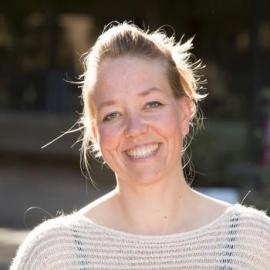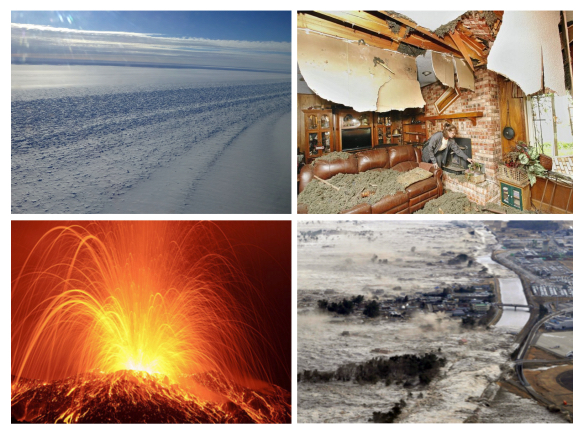
Date:
Location:
Speaker:
How fast can ice sheets disintegrate? When do induced earthquakes pose unacceptable risk? Why do volcanoes erupt? And how can we limit the destructive reach of tsunamis? The common denominator of what at first glance might seem like disparate systems is multiphase flow. The dynamic interactions between multiple solid and fluid phases − such as ice and meltwater, rock and wastewater, magmatic mush and gas, sediment and water − give rise to drastic nonlinearities that govern abrupt change. This talk explores the role of multiphase instabilities in the onset and evolution of extreme events for different natural settings including Antarctica, induced seismicity, basaltic volcanoes, and tsunami runup. I focus specifically on why it is beneficial to study these problems within a common multiphase and multiscale framework.

Above: Figure showing examples of the type of extreme events we study (from top left to bottom right):
Surface crevassing along a shear margin on the Ronne Ice Shelf (Maria-Jose Vinas, NASA DC- 8), the damage created by an induced earthquake in Oklahoma (Jim Beckel, The Oklahoman), a typical eruption of Stromboli volcano in Italy (Tom Pfeiffer, Volcano Discovery), and the Japan tsunami washing onshore (AP Images).
Before joining Stanford in January 2014, Dr Suckale held a position as Lecturer in Applied Mathematics and as a Ziff Environmental Fellow at Harvard. She holds a PhD in Geophysics from MIT and a Master in Public Administration from the Harvard Kennedy School. Prior to joining graduate school, she worked as a scientific consultant for different international organizations aiming to reduce the impact of natural and environmental disasters in vulnerable communities. The goal of her research is to advance our basic understanding and predictive capabilities of complex multi-phase flows that are fundamental to Earth science. She pursues this goal by developing original computational methods customized for the problem at hand. The phenomena she explores range from the microscopic to the planetary scale and space a wide variety of geophysics systems such as volcanoes, glaciers, and magma oceans. She has taught both undergraduate and graduate courses in scientific, planetary evolution, and natural disasters.



